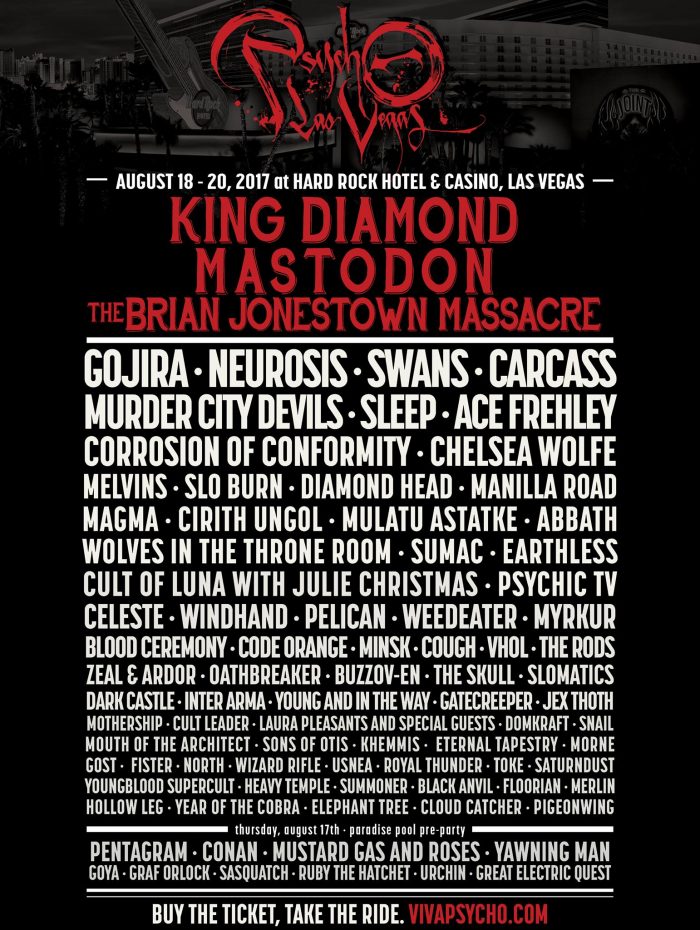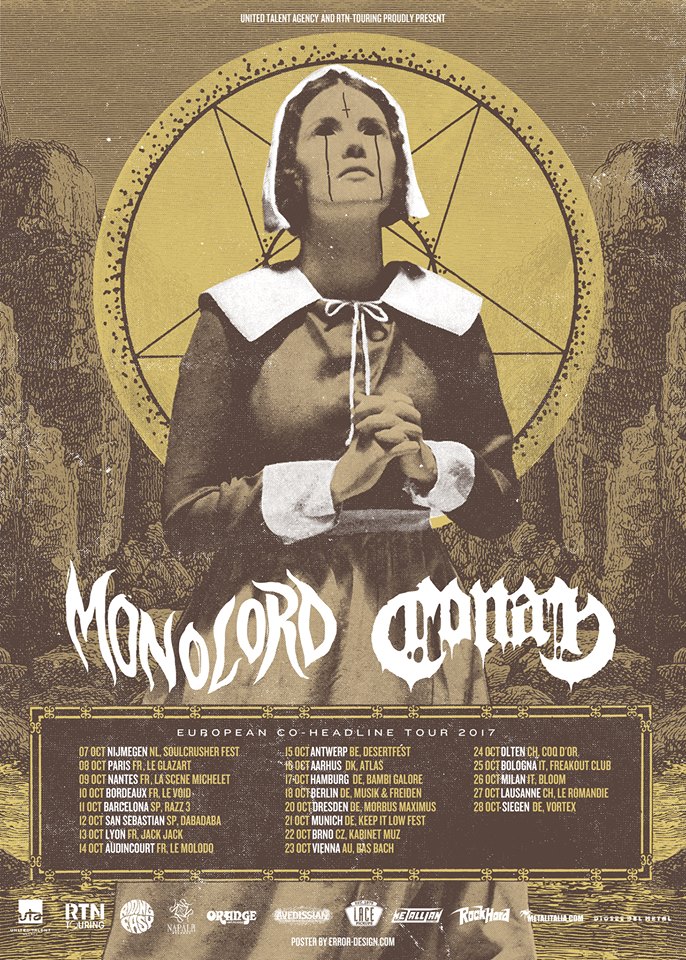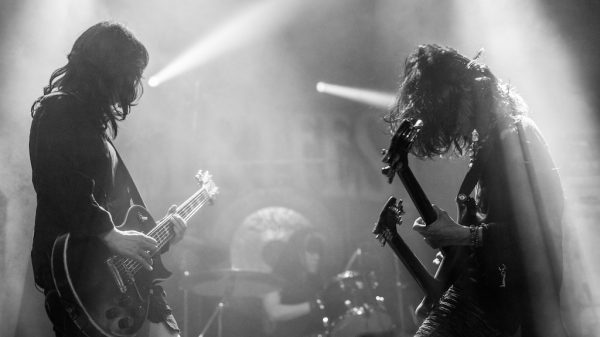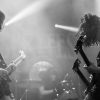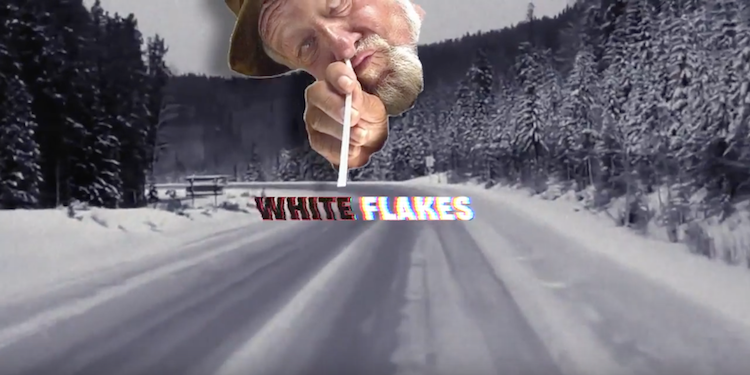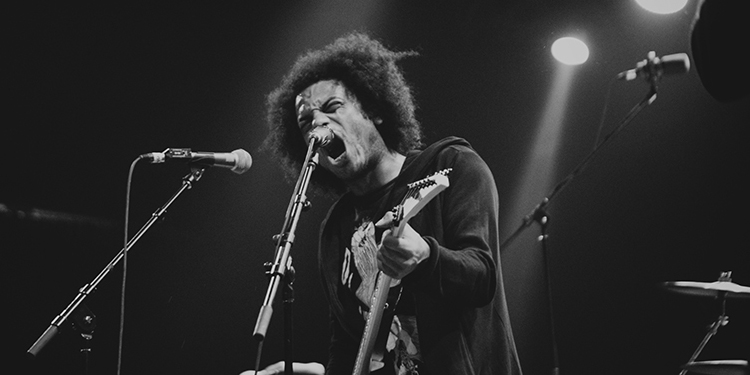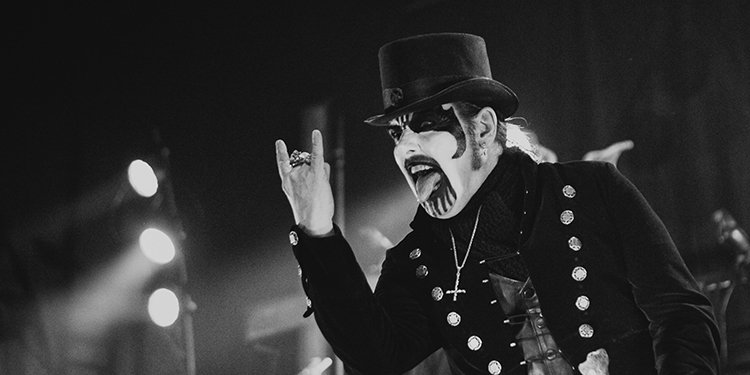If the dwarves in the Mines of Moria listened to music, it was Conan. For the past ten years, the UK-based trio has made their own, unparalleled genre of sword-and-sorcery, fantasy-laden doom metal. As if trudging through a bog in the dead of a warm, damp night, their sound is slow, foreboding and incredibly unforgiving. They are effortlessly heavy and completely unaware of “soft” or “quiet.” Revengeance, the band’s third full-length, saw, most notably, drastically increased tempos to contrast against the lead weight of their signature sludge. Conan are masters of mystical, massive metal. Founder, vocalist and guitarist Jon Davis chatted with us about their namesake barbarian, simplicity and Slomatics.
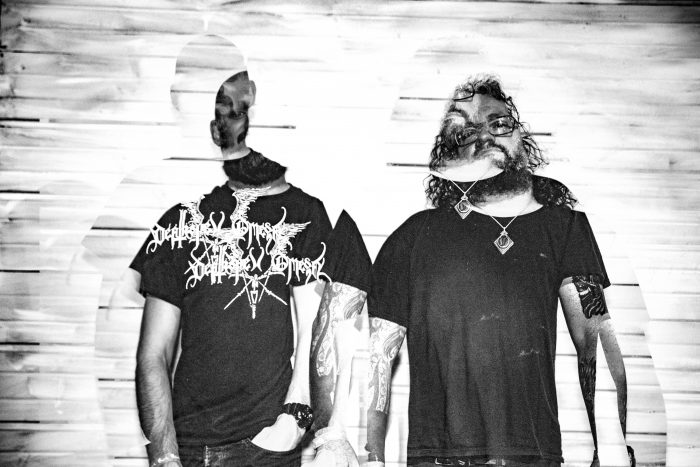
So first off, what is your favorite Conan the Barbarian movie or story or book?
Jon Davis: I’d probably say The Sword of Skelos. It’s one of my favorites because it involves a little bit more than just Conan killing people. It was a magic sword that was commanded by this wizard and it could kill people remotely. I remember being really interested in that idea. The Arnold Schwarzenegger movies are what everyone probably thinks about when they think of Conan. I didn’t think his acting was all that good.
And the new one was horrible.
Jon: Yeah, the new one was horrible with all the CGI…
What do you hope to convey through your music?
JD: Well, we want to convey now really the same as what we did when we started out – and that was to play music that was pretty simple but effective. We kind of play to my strengths, really. The other guys in the band are much more accomplished musicians than I am and I think my aim is always just to play simple stuff and then they can add a little flair to it. It seems to work out quite well! At first, I didn’t really envision having band members that were on a higher level than I am. When I started out it was just me. I managed to get a friend that was a bass player to play drums – well, he tried – and it just went from there. It’s always been simple but effective. It really just started off for me to vent my frustrations about being alive and now it’s taken on a whole different meaning. Coming on tour, I look at things slightly differently now, like it’s all of a sudden gotten a little more serious. No less fun and no less fulfilling. Now you’ve got to, maybe, work a little bit harder because I’m not just sitting in the spare room anymore. Flying all over the world. It’s awesome. I wouldn’t have it any other way.
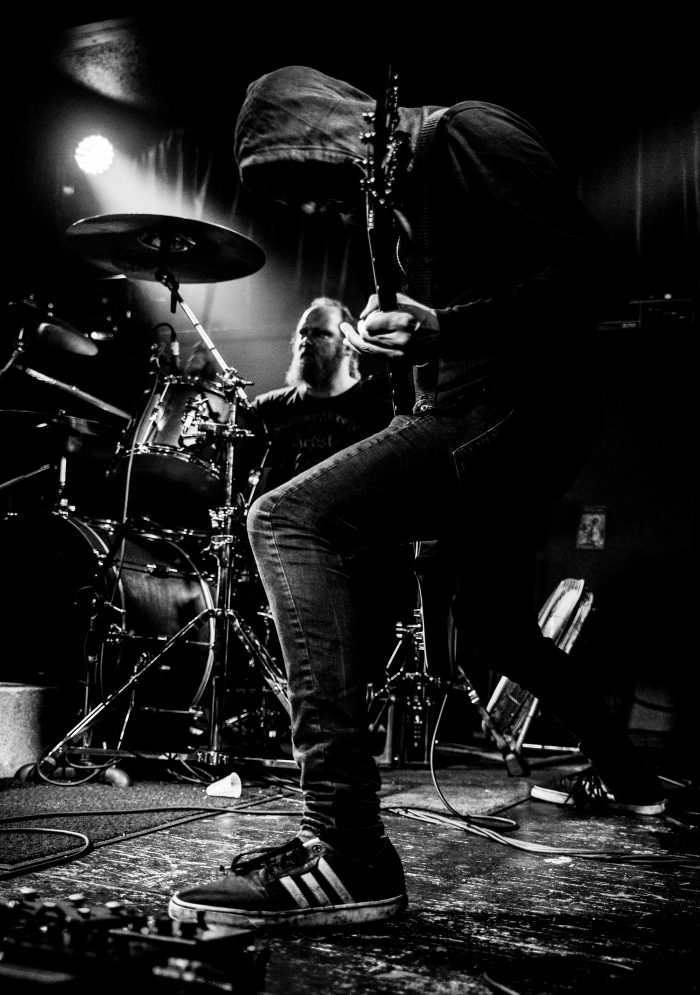
What are the essentials to what you call “caveman battle doom?”
JD: First of all, I think a mindset of not taking yourself too seriously. Another mindset of working really hard. On a musical level, I’d say we tune down pretty low. Like I said earlier, we play music which is pretty simple. We don’t like trying to stray too far into technical metal or death metal or anything like that. We listen to that a lot, but we like to think of ourselves more along the lines of Ogre or High On Fire. That sort of music. The essentials came about from doing a simple approach and not trying to complicate things. We quite like being a three piece. We were a two piece originally, so that lends itself to a simpler sound. Simple approach is really important.
Do any particular authors influence your songwriting?
JD: J.R.R. Tolkien is an obvious one. His movies, well books, and therefore… The visual representations of them helped me a lot writing the last two albums. The first animated version of The Lord of the Rings, which I think Ralph Bakshi animated that, was really awesome. That really helped me visualize the sort of world that the music would represent. We don’t write about The Lord of the Rings much, although on Blood Eagle there was a song called “Foehammer,” which of course was Gandalf’s sword, the Glamdring. On new material I’m sure we’ll make some more references to that. So Tolkien definitely as a writer. But, in terms of movies, I really like some of the animation of Ralph Bakshi. He did Fire and Ice, as well. That’s a really good movie.
[youtube id=”-of5C1OHX_8″]
What’s that?
JD: It’s an animated movie, but it’s based on human movements and then they drew over it. It comes across very lifelike but it’s still animated like the original animated The Lord of the Rings. There’s a cool movie called Conquest by Lucio Fulci which was a very basic sword-and-sorcery movie from the late 70s, early 80s. Italian. Real low budget. That’s a favorite movie of mine. I couldn’t tell you who wrote that story, but Lucio Fulci directed the movie. So, the main author would probably be Tolkien, but of course you have Robert E. Howard who wrote the original Conan stories. Most of the stories that I have read writing the music would be the later stuff, which was written by L. Sprague de Camp. They’re the ones I’m more familiar with. Obviously the original character belongs to Robert E. Howard, but some of the more interesting stories were written later on. I love collecting those little paper back books. I’ve maybe got 100 of them.
Wow, really?!
JD: Well, maybe not that many [Laughs]. The studio that we have is just full of Conan books. I like just reading the odd page here and there. I’ll get a line or a couple of words, even, and I think, Okay, that gives me an idea for a verse or a chorus. Even if I’m just shouting that two lines over and over. It works. It’ll help me come up with riffs and stuff. I find it pretty easy to write music when I’m reading those sort of books. Pretty lucky, really, I guess. Our music, like I was saying before, is kind of simple so it’s easy to write. The initial ideas are always easy to come across. It’s just making them sound good that’s difficult now because we’ve written quite a lot of music already so we’ve got to try to be careful that what we’re writing is new.
And not just rehash the same ideas over and over.
JD: We could do that. We could have 20 albums by now. We’ve got to be careful not to stray too far from what we call home, but at the same time for it to sound new. That’s a tricky one, but it’s fun. It’s an exciting challenge, so I like it.
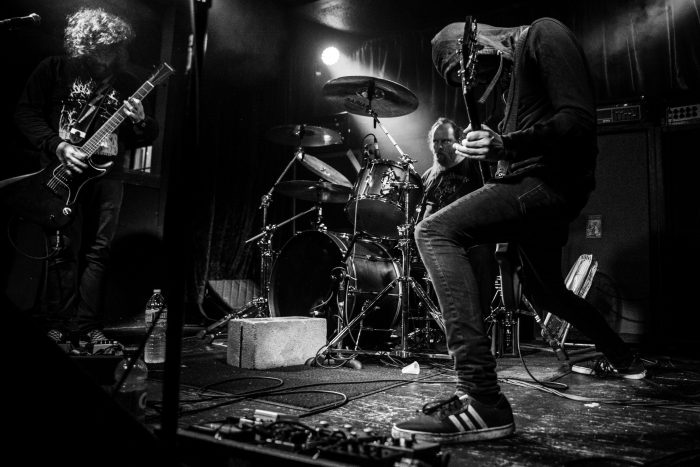
You guys just played Maryland Deathfest. How was that?
JD: It was great. It’s our second time. We played with Dopethrone in Montreal a few days earlier and they, unfortunately, couldn’t make it to MDF. Some problem with the visa I guess. We have a visa, so touch wood we’ve never had a problem and don’t anticipate any issues. There’s nothing to stop us traveling because we haven’t got any issues in our background. So we were able to play a longer set. Originally they were giving us 45 minutes. We sold loads of merchandise. There were people there already in our merch – like at a lot of festivals, people have our merch. North, our tour partners, took Dopethrone’s place, but it was still running early by about 40 minutes. I said to the lady, Bridget, who was backstage, Do you think, maybe, because the festival is running early… Why can’t we just play a little bit longer? Bridget ran and asked somebody else and they said, Okay fine. So we played an hour instead of 45 minutes. We felt really at home. We had to cut one song from the set, but not two songs – which would have been the case if we had 45 minutes. We started off quite well but I had a slight technical problem during the second song. The power supply to my pedal board, because the stage was vibrating so much, popped out and I lost power to my pedals. My guitar signal cut out totally twice! Fortunately, friends of mine who are in the band Holly Hunt were watching me from side stage, so in the middle of playing I was mouthing to them, Get some gaffer tape! They had to come on stage and Gavin (Perry) held my power in for the whole song and then at the end of that song the stage manager came across and stuck it down. Everything was fine after that. The show was insane. People were going crazy. There was crowd surfing and mosh pits and that’s something that’s sort of new to us. Our music now is a little more uptempo than it was maybe a couple of years ago. Certainly with Revengeance and some of the songs off Blood Eagle, people expect us to be a little more “in your face.” A bit more aggressive. We’re not aggressive as people, but the music itself is pretty hard-hitting I guess. It was cool. It was fun to see people losing it. Really satisfying to see people go crazy like that.
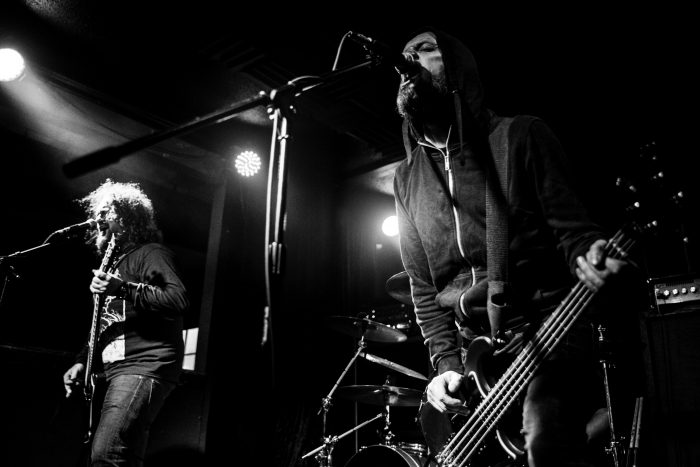
Your live shows have been compared to Swans and Jucifer based on how loud and suffocating they are. Did any thing or band specifically make you want to play like that? Or is it naturally part of your music?
JD: A bit of both, really. The first couple of bands that I listened to when I wanted to write this sort of music was Slomatics and High On Fire and, later, Black Cobra. Of course I’m a big fan of Jucifer. We’re friends with them, too. The fact that they are unrelenting in their pursuit of volume and heaviness – I’m not sure we could top them. Jucifer, I would say, would simply have to be the loudest band that you’ll ever go and see.
You cannot hear the next day.
JD: Nope. I mean, the amount of equipment they use…
I don’t know how they fit it in the one trailer.
JD: And they do it all themselves. They don’t have any help. Those guys are awesome. I mean, we do play quite loud. The vocals are quite shouty. I think one of the things that contributes to that feeling of being punished by the volume is that we don’t have any quiet parts in any of our songs. There’s no let up. All our songs are loud and heavy from start to finished. We’re not really very subtle in what we do. We could be, I suppose, in the future.
Ehh, then it wouldn’t be the same!
JD: No, we don’t want to do that just yet. I’m still in the mindset of, The louder and the heavier, the better. Long may that continue. And we don’t have more equipment than anyone else. We don’t play louder than anyone else. It also depends on the PA and the guy managing the front of house sound. We tune quite low, so that might contribute to the feeling of suffocation. If the vibration were strong enough, it would make you feel it in your chest a little bit – make you lose your breath a little bit. I think that would help. The way we tune our instruments is going to contribute to that.
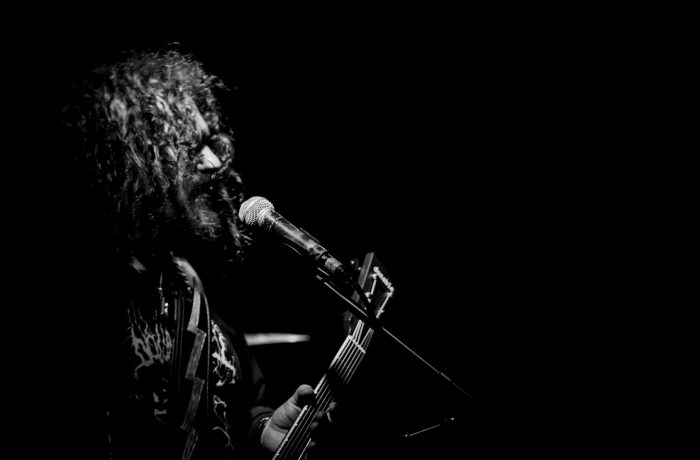
With black metal, it’s sort of separated into European and American. With what you do, do you think there’s a difference between it and American doom metal?
JD: I’m not sure, really. I think there’s elements of our sound that sound a bit like High On Fire. That’s inevitable because they’re such a big influence.
For everybody!
JD: Who wouldn’t be influenced by a band as good as that? Then again, there’s elements of our sound that are influenced by Candlemass and Black Sabbath – and a lot of bands are influenced by them. I’d say I’m not sure we sound as if we’re from any one particular place. I’ve had people tell me that they thought we were from the US.
Oh yeah, I did! Forever. [Laughs]
JD: Yeah, lots of people thought that! Before we started to tour people thought that’s where we were from, so it’s cool to find that out. A lot of my favorite band have always been from America. In terms of popularity, we seem to be quite popular over here, as well as in Europe. And Australia, as little as we’ve been over there, as well. We tend to be pretty evenly balanced. We don’t come to America and think it’s way better than Europe with crowds and we don’t go to Europe and it’s worse than America. It seems quite even.
Well that’s good – to not be discouraged when you go certain places.
JD: Oh yeah, you always feel encouraged when you go somewhere. On this tour now, the crowds have been slightly better than last time. And last time was slightly better than the time before that. You just want constant growth. If the opposite were true it would be a little bit disheartening. Like, What are we doing wrong? But, yeah, I think we’re acceptable for both continents. I mean, I’ve been influenced by bands from both sides of the ocean so it makes sense.
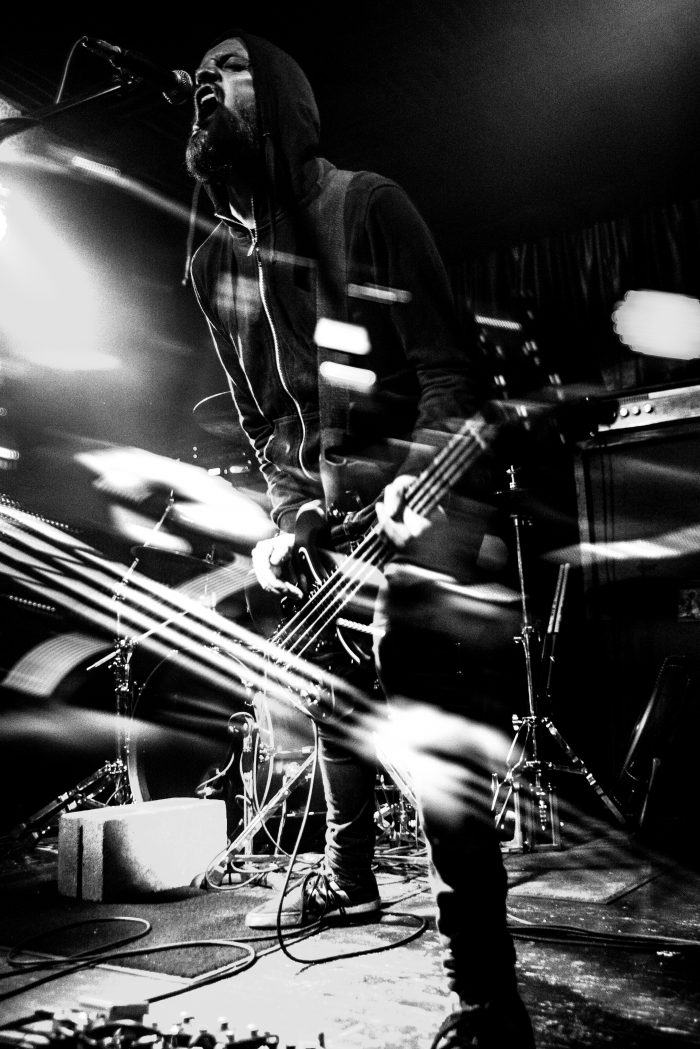
When you look back, is there one song or artist that definitively shaped this band? Do you remember listening to somebody and thinking, I want to do THAT?
JD: Yeah, without a doubt: the first album by Slomatics. They’re a band from Northern Ireland who are getting some good shows now. Some good reviews. They released their latest album on my label (Black Bow Records) and I think that’s really helped them. They played Roadburn this year. They’re playing Psycho Las Vegas this year. They’re making some moves. When I first heard their first album in 2005, I got a CD of it from their guitarist Chris and I remember listening to it and thinking, Okay, that’s what I want to do. Same feeling as when I first heard Nirvana. I was just learning to play guitar at the time when I first listened to them and I thought, Oh wow, this is like heavy metal but easier to play! Slomatics was a bit like that. This is like Nirvana but easier to play! I thought, I can play this and probably do something with it. So I kind of just took what they were doing and tried to add my own voice. Once or twice we’ve ripped them off here or there – and I’ve told them as well!
It’s a compliment!
JD: Exactly! I kind of had to to get myself up to ground when it comes to writing. Pick off a couple of riffs which I knew I could make into my own sort of thing. Yeah, Slomatics if I could name one band. They play very, very simple music. They’ve got really good guitar tone. Vocals are cool. The themes of the songs are really interesting to me, as well. They’d be the one if I could name just one. And I get to play with them now whenever they play festivals. If I’m there I’ll usually do one song with them called “March of the 1000 Volt Ghost.” I’ve played that four or five times now. I did it at Roadburn and that was awesome and I’m going to do it again at Psycho Las Vegas.
Sound-wise, how do you think this band has evolved since you started it?
JD: I think were heavier. I think the riffs are a bit more accomplished now. Not complicated in a bad way, but definitely more interesting. I’d say we’ve gotten better at what we do. Vocals have improved quite a lot. I mean, I still wouldn’t say I “sing.” It’s shouting, but in tune. I think now the vocals have a little more character to them – it’s more than just shouting. There’s a bit more control and there definitely wasn’t at the very beginning. Song structure, as well, we’re still capable of writing longer songs, but then, through the influence of bands like Weezer, we can write shorter songs with more of a traditional structure and still make them sound like a Conan song. I think that’s really quite an achievement. Some of our songs are a little bit pop-y in their structures, but still really heavy. I’m really happy about that.
That you can actually mix the two successfully – yeah! You wouldn’t think so.
JD: It’s hard. Some songs do come off sounding quite pop-y. Like Torche for example, they sound quite accessible but the songs are heavy as hell. I guess we’re trying to use that sort of line. “Foehammer” is a really heavy song and the structure could be a pop song if it was in a different key. Like, we’ve written a song about The Lord of the Rings that’s all about elves and dwarves and stuff. I love going on that adventure. It’s like, if I can write a song like that, then why not? It’s fun.
And it fits!
JD: Yeah, totally! I like challenging myself like, Do you want to write a song about Gandalf’s sword? Can you do it? I think so. And then I just go and do it to prove it to myself. I like that feeling.
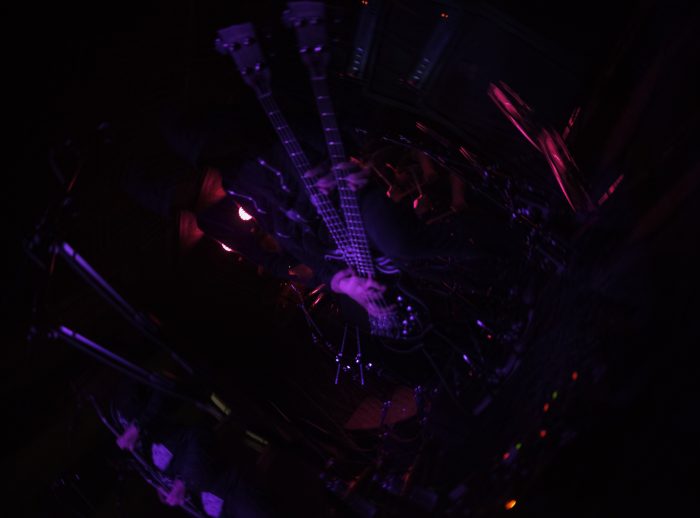
Revengeance is a little over a year old, but have you started writing or recording new stuff?
JD: We’ve just started writing riffs now. We aim to have a new album out early next year. That’s still our plan. We’re going to start writing at the end of this year, but we haven’t got any songs written. We have some ideas. Some ideas of direction. A few actual physical bits of music demoed. Small bits of songs that we’ve recorded on a voice recorder. So we have the nucleus forming – we’ve been saying that for a while, though. I think after this tour we haven’t got a very busy year in terms of shows so we’re really going to start writing properly after this tour is finished. Chris and I work at a recording studio. I own the building and he works there so we’ve got no excuses really. We’ll get going once this tour’s out of the way.
What are some new records or artists that you’ve been listening to that we might not have heard of?
JD: I’m going to have to name a couple who are on my label. I’ve got a label called Black Bow Records and I just released an album by a band called Pyreship from Houston. The Liars Bend Low it’s called. They’re really cool. I still listen to Slomatics’ most recent album. That’s really popular still. The White Album by Weezer – still listening to that. That’s not really brand new, but I’m a massive Weezer fan. Memoriam, they’re a band that’s come out of the ashes of Bolt Thrower. They’ve got that Bolt Thrower vibe going on. I’m really happy that they’re writing music now because it sounds awesome. I really like the guy’s vocals. The style. That’s a really cool album if you can listen to that. Aside from that, I’m really getting into synthwave like Perturbator. I like listening to Mitch Murder or Robert Parker. They’re a couple of lesser-known synthwave artists. That whole style of music I’m starting to get into now. It’s really good to listen to in the van and you just drive long distances. It doesn’t demand a lot of you and keeps it interesting. It’s not tiring to listen to like heavy metal. I’ve gotta be doing this all night, so do I really have to listen to it all day? I really like synthwave. Any artist, really. I’m interested in hearing about new people. Mega Drive – there’s another one. There’s probably hundreds that I don’t know about but I’m interested in finding them all, you know?
